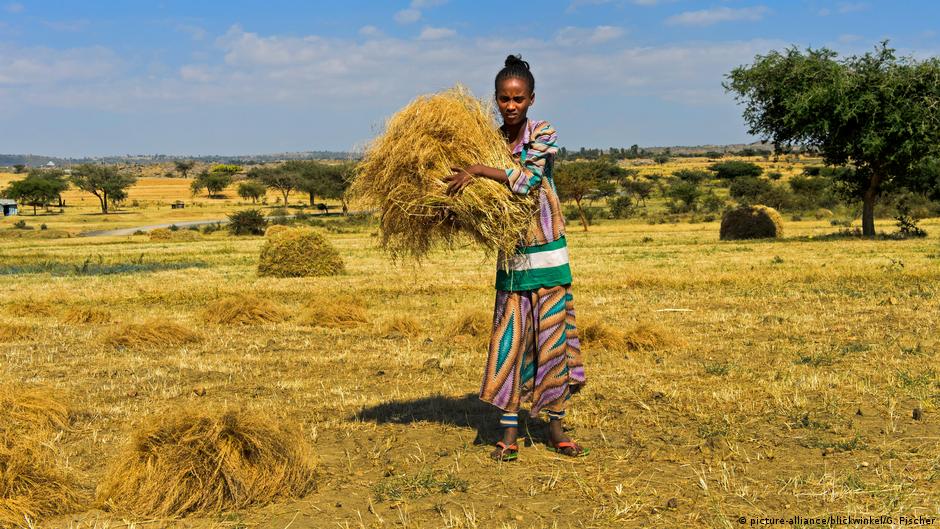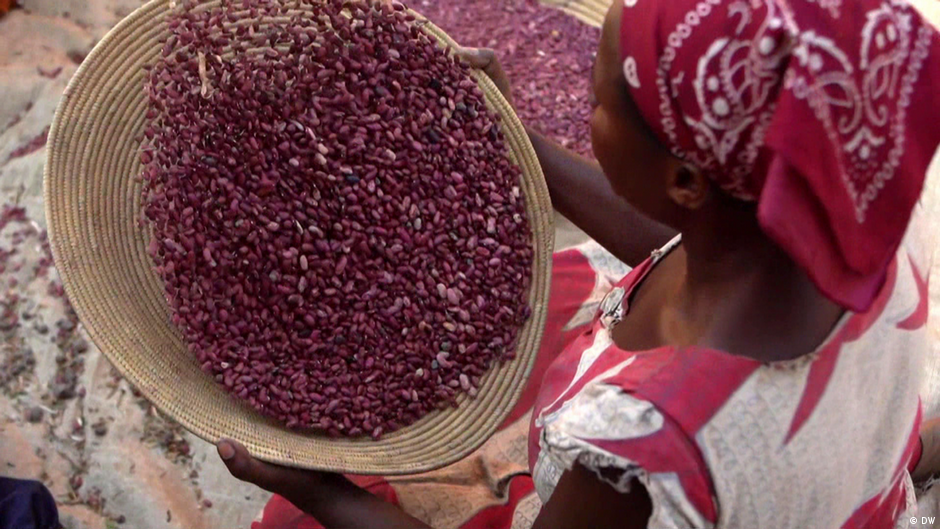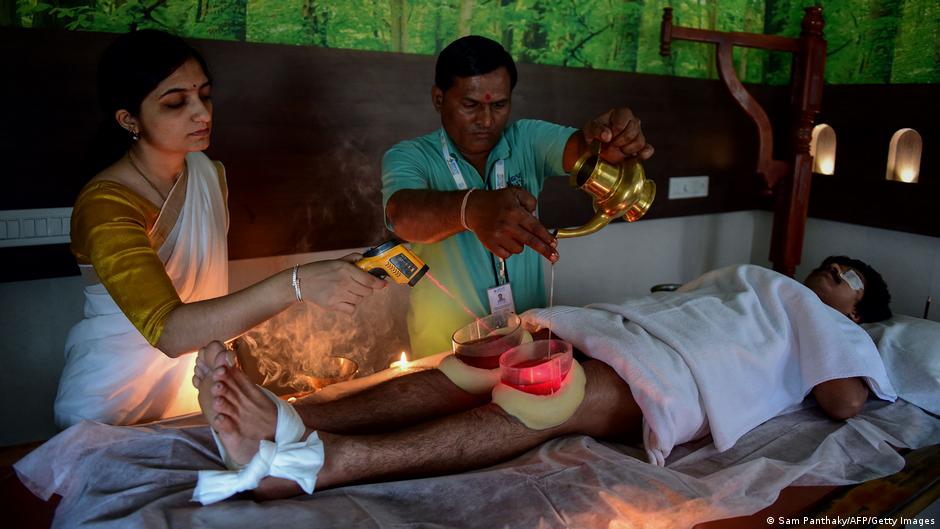How to stop Western theft of developing countries' IP wealth

Ethiopian farmers have cultivated teff for thousands of years. But a Dutch company holds a patent on processed teff flour
A few years ago, the German professor of intellectual property law Tim Dornis was on sabbatical in California when the General-Secretary of the German Association for Intellectual Property Law (GRUR) contacted him.
“He said, ‘We’re about to see a very important development in Geneva that we need to have a look at. Because it could be something groundbreaking’.”
Geneva is home to the World Intellectual Property Organization (WIPO), a United Nations agency that promotes and protects intellectual property (IP) across the world. IP Law deals with the legal protection and ownership rights for things people create with their minds, like inventions, art and writing.
So Dornis, who has represented GRUR at WIPO conferences in recent years, went to Switzerland and started digging into what was happening at WIPO.
“And then I realized that this could really be groundbreaking,” he told DW.
Between May 13 and May 24, a diplomatic conference will be held in Geneva to forge an agreement on a so-called international legal instrument that seeks to “enhance the efficacy, transparency and quality of the patent system.”
According to a WIPO press release, the instrument aims to “prevent patents from being granted erroneously for inventions that are not novel or inventive with regard to genetic resources and traditional knowledge associated with genetic resources.”

The seed markets of countries in the Global South are in the sights of agribusinesses
Half a century in the making
For more than 25 years, developing countries and indigenous peoples have been pushing for IP laws that better protect their local flora, fauna, traditional knowledge and culture from exploitation by outside parties.
In recent years, calls have grown louder for greater accountability from companies that use the traditional knowledge or cultural heritage from foreign countries or indigenous cultures.
Fashion brands have been called out for using traditional patterns in a clothing line, and pharmaceutical companies have come under scrutiny for turning a medicinal plant into a drug they can sell. Critics of the practice call it cultural appropriation or, when it’s dealing with the use of genetic resources like plants, biopiracy.
“[This knowledge] doesn’t really fit into the framework of the existing IP system, such as the patent system or the copyright system,” Wend Wendland, director of Traditional Knowledge, Genetic Resources and Traditional Cultural Expressions at the WIPO, told DW.
But the discussion about legal protections in this realm really took off much earlier, with the establishment of the World Trade Organization (WTO) in 1995. This created a new set of international standards for intellectual property rights for all WTO member states to implement.
In India, for example, the transition to this new system unearthed an unsettling discovery: other countries, particularly industrialized ones like the US, were filing many patents on products that had been part of traditional practices in India for hundreds of years.
“I mean aspects such as turmeric for wound healing, basmati rice for its fungicide activity and so on,” Viswajanani Sattigeri, the head of India’s Traditional Knowledge Digital Library Unit (TKDL), told DW.
Stopping the loss of heritage and knowledge
The problem? When a patent for traditional knowledge is granted to a third party, that party becomes the owner of such knowledge, said Sattigeri. “The nation loses its own heritage and its own traditional knowledge.”
But now, that could be changing. In May, WIPO’s 193 member states will meet and potentially ratify the first step of a legal instrument aimed at creating greater protections for these assets.
WIPO has broken them down into three areas that it sees as vulnerable under the current system: genetic resources, traditional knowledge and traditional cultural expression. Genetic resources are biological materials like plants and animals that contain genetic information, while traditional knowledge encompasses generational wisdom within communities, which is usually passed down orally.
This could include knowledge about biodiversity, food, agriculture, health care and more. Traditional cultural expression includes artistic creations reflecting a group’s heritage and identity, like music, art and design.
“It changes the classic understanding of intellectual property,” said Dornis. “[…] It might break the system that [says that] many things are unprotected.”
Under current IP law, legal protections for original creations tend to fall away after a certain amount of time has passed after they were created. But many traditional practices have evolved and been passed down for hundreds of years or longer, meaning they wouldn’t be protected anymore. There also isn’t one inventor to give credit to — the knowledge is held communally, and it can be difficult to trace it back to a specific community or region.
It’s easier for a single third party to come in, gain knowledge from the community, and return to their own country where they can apply for a patent there based on what they’ve learned.
Dornis said that this makes it possible for developed countries, for the most part, to say “we’ll take that and we’re not going to reimburse you for it.”
“But if you are in need of a pharmaceutical invention and a medical product that is based on their genetic resource or traditional knowledge, you have to pay for the medicine, because it’s patent-protected,” he said.

Ayurvedic therapy practized in India and other traditional healing methods will be better protected
Disclosure and compensation
The May meeting will be focused exclusively on genetic resources and trying to adopt a so-called legal instrument that will require patent applicants in WIPO member states to disclose where they sourced the plant or associated knowledge they want to use, and whether they were given permission to use it. If that treaty passes, the focus will then turn to creating clearer definitions for the other two categories.
This draft legislation law also seeks to create databases, like the one Sattigeri runs, where such information can be easily tracked. India’s TKDL, which was the first of its kind globally, has spent decades transcribing and translating information from traditional Indian texts — many written in Sanskrit — into its database, creating a record of the country’s traditional knowledge for patent officers to consult.
“We targeted the Indian systems of medicine, namely Ayurveda and Unani,” she said. “Also what kind of yoga practices there are here. And a wealth of information related to health, including animal and plant health, and also cosmetics.”
When reviewing a patent application, patent officers can consult these kinds of databases to see if anything similar already exists. The databases will also help countries keep track of patents that draw on knowledge or resources mined within their borders.
Countries rich in biodiversity have been asking for such disclosure requirements and databases for decades. This new agreement, if passed, won’t create new compensation requirements. But existing environmental law already requires any financial benefits made from an invention to be shared with the country of origin. So stronger disclosure laws could lead to greater financial compensation for these countries.
WIPO’s Wend Wendland said many developing countries see the regulation as “a significant step forward.”
“That’s why it’s important for them. It is very technical, but it has a long history and it has a lot of symbolism for many countries, especially those in the developing world.”
Edited by: Uwe Hessler
Author: Kristie Pladson
